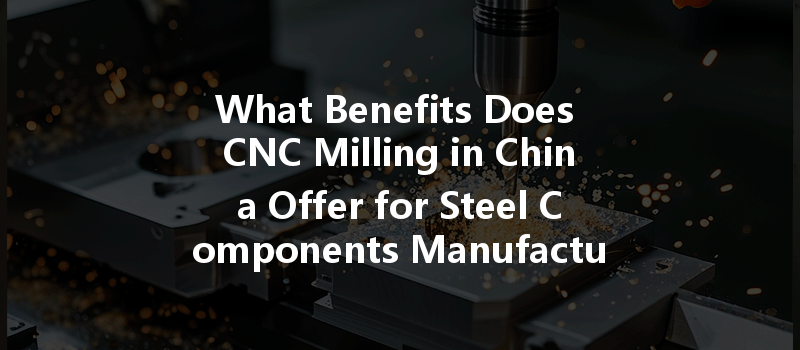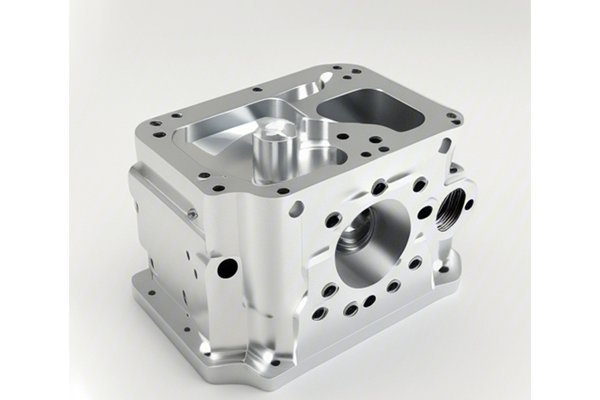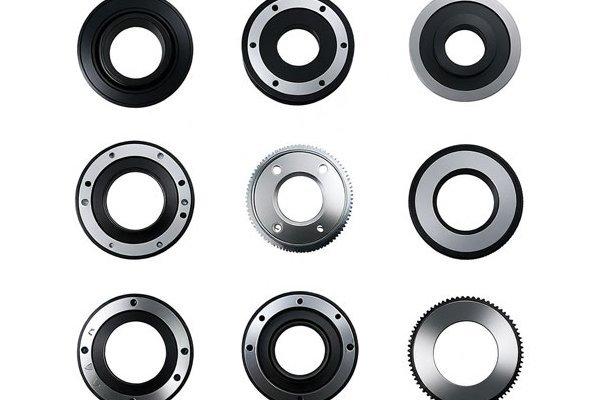Did you know that China produces approximately 50% of the world’s steel, making it the largest steel manufacturer globally? This colossal production capability not only fuels its industrial growth but also positions China as a prime destination for CNC milling services, particularly for steel components manufacturing. As industries around the world continue to seek cost-effective, high-quality solutions for their manufacturing needs, the appeal of CNC milling in China becomes increasingly significant.
In this comprehensive blog, we will delve deep into the benefits of utilizing CNC milling services in China for steel component fabrication. We will explore various aspects, including technological advancements, cost efficiency, quality assurances, supply chain logistics, and the overall impact on businesses looking to thrive in competitive markets.
1.1 What is CNC Milling?
Computer Numerical Control (CNC) milling is a sophisticated manufacturing process that utilizes pre-programmed computer software to dictate the movement of factory tools and machinery. CNC milling is paramount in producing complex geometries and precision parts, making it indispensable within various sectors, including automotive, aerospace, and machinery.
1.2 Applications of CNC Milling
CNC milling is widely used for a variety of applications:
2.1 A Growing Industry
The steel industry in China has experienced substantial growth and transformation over the years. With its vast resources and robust manufacturing base, China stands at the forefront of the global market. This positions the nation as a leader in both the production and supply of steel components.
2.2 Key Players and Technologies
Chinese manufacturers leverage advanced technologies such as automation, robotics, and CAD/CAM software, significantly improving production efficiency and quality. Many of these firms specialize in CNC milling and offer competitive pricing coupled with exceptional quality.
3.1 Cost Efficiency
One of the most compelling reasons for outsourcing CNC milling services to China is cost efficiency. Lower labor costs, reduced overhead, and favorable currency exchange rates enable manufacturers to produce high-quality steel components at a fraction of the cost compared to Western countries.
3.2 Access to Advanced Technology
China’s commitment to technology and innovation means that manufacturers often have access to state-of-the-art machinery and processes. Advanced CNC milling machines can produce intricate designs with unparalleled precision. This translates to better quality products and shorter lead times.
3.3 High-Quality Standards
Chinese manufacturers have adapted to meet international quality standards, including ISO certifications. Many companies implement rigorous quality control measures and utilize advanced inspection technologies to ensure that every component meets specific tolerances and performance criteria.
3.4 Flexibility and Customization
CNC milling in China offers unparalleled flexibility in terms of customization. Whether you require a small batch of unique components or thousands of standardized parts, manufacturers can leverage CNC technology to meet diverse needs efficiently.
3.5 Quick Turnaround Times
With vast production capacities and the ability to operate around the clock, many Chinese CNC milling services can provide quick turnaround times. This agility is crucial in meeting tight project deadlines and responding to market demands.
3.6 Comprehensive Support Services
Chinese manufacturers often provide a suite of support services that can cater to the entire design-to-production process. This includes design assistance, prototyping, and logistics management, thus simplifying the workflow for clients.

4.1 Assessing Capabilities
When selecting a CNC milling partner in China, it is essential to evaluate their production capabilities. This includes understanding their machinery, technology, and workforce expertise.
4.2 Investigating Certifications
Look for manufacturers that hold relevant certifications (e.g., ISO, CE) that validate their commitment to quality and compliance with industry standards.
4.3 Reviewing Past Projects
Examine case studies, client testimonials, and portfolios of completed projects to gauge the manufacturer’s experience and areas of expertise.
4.4 Effective Communication
Ensure that your potential partner has a robust communication system in place, facilitating seamless interaction throughout the project lifecycle.
4.5 Intellectual Property Protection
Assess the measures taken by the manufacturer to protect your proprietary designs and intellectual property. This is critical for maintaining competitive advantages.
While CNC milling in China offers numerous advantages, it is vital to consider potential challenges that may arise.
5.1 Quality Control Issues
Even with stringent quality control measures, differences in standards and practices may lead to inconsistent quality. Establishing clear specifications and conducting regular audits can mitigate this risk.
5.2 Cultural and Language Barriers
Cultural differences and language barriers can complicate communication between clients and manufacturers. Utilizing translators or hiring local consultants could help ease these challenges.
5.3 Shipping and Logistics Delays
International shipping can present challenges such as delays and customs complications. Collaborating with experienced logistics providers can help streamline this process.
6.1 Case Study Example: Automotive Industry
Consider a Western automotive manufacturer seeking to reduce costs. They partnered with a CNC milling company in China to produce lightweight steel brackets required for new models. Through effective collaboration, the company reduced costs by 40% and improved lead times significantly. The result? A successful launch and heightened competitiveness in the market.
6.2 Case Study Example: Aerospace Applications
A small aerospace firm leveraged CNC milling in China to fabricate intricate components essential for aircraft engines. By working alongside a Chinese manufacturer known for its precision, they improved quality and adhered to regulatory standards while maintaining budget constraints.
As the demand for customized and high-precision steel components continues to grow globally, the CNC milling industry in China is poised for further developments. Innovations in artificial intelligence and machine learning are expected to enhance manufacturing efficiency and product quality.
In summary, CNC milling in China offers numerous benefits for manufacturing steel components, from cost efficiency and technological advancements to the flexibility of customization and stringent quality control. The decision to partner with a CNC milling service in China can significantly impact your business’s success, enabling you to remain competitive in an increasingly globalized market.
Whether you’re an established manufacturer looking to optimize operations or a startup seeking competitive advantages, considerations highlighted in this blog provide a roadmap for leveraging CNC milling capabilities effectively.
The take-home message? As the manufacturing landscape evolves, remaining informed about global options and understanding the strengths of CNC milling in China may very well be the key to unlocking your business’s potential.






